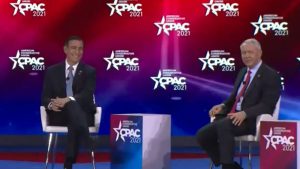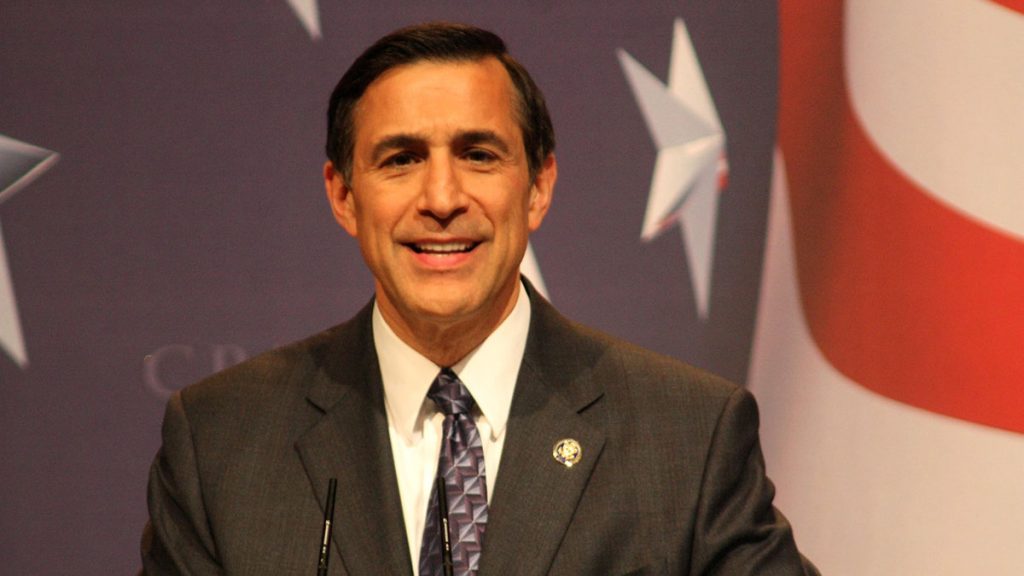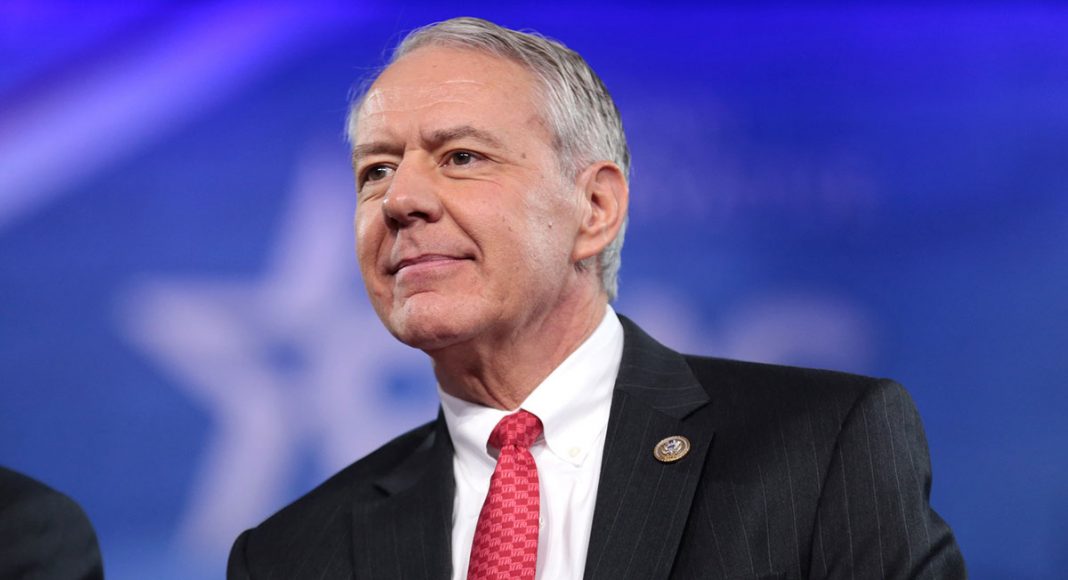Speaking at the 2021 Conservative Political Action Conference, Congressmen Darrell Issa and Ken Buck discussed their stances on breaking up Big Tech, Section 230, and the state of competition in the US.
The 2021 Conservative Political Action Conference (CPAC) in Orlando, Florida made a lot of headlines this past weekend. A majority of the pieces about CPAC were dedicated to former President Donald Trump’s keynote speech and the fact that he won the CPAC presidential straw poll, with 55 percent of the participants voting in his favor. However, there was one antitrust-focused session on Saturday afternoon that attracted little attention.
About 27 hours before Trump took the stage, Congressmen Darrell Issa (R-CA) and Ken Buck (R-CO) sat on the very same spot to discuss their plans to rein in the power of Big Tech. For years now, companies like Twitter, Facebook, Google, and Amazon have faced accusations from Washington lawmakers of discriminating against conservative viewpoints. The calls for regulation of Big Tech once again gained traction among Republicans late last year, when a number of companies began labeling Trump’s posts on their platforms for misinformation and later banned him from their platforms following the January 6 riots at the US Capitol.
During a 20-minute session titled “Do Not Pass Go: The Meaning of Monopoly in the Modern Era,” Issa and Buck discussed their stances on breaking up Big Tech, Section 230, and the state of competition in the US.
What Should We Do with Big Tech?
Buck did not waste any time and within minutes called for the break up of Big Tech companies.
“We really have three issues. We have a monopoly issue. We have the speech issue. And we have the privacy issue. I am focused on the monopoly issue. I believe that if we break these companies up, if we create a competition in the marketplace, we will deal to a certain extent with the speech,” he said.
“We need to do things like make sure that a platform like Amazon can’t create a product and compete with the company that is actually using Amazon. So, it can’t be a platform and have a line of business that operates on the platform. Apple can’t compete with the apps on the App store. I think there are a lot of things that we can do to make sure we bring competition in.”
Buck then brought it all back to President Trump getting kicked off Facebook and Twitter and, noting that many people working for tech companies tend to be Democrats, claimed conservatives won’t be treated fairly unless some of these tech companies are broken up. “We are never going to get a fair shot from these companies. We need to break them up. We need to make sure we have competition in the marketplace so we do get a fair shot with one of the companies,” said Buck.
Conservatives, said Issa, are “at war” with Big Tech.
“The important thing is—even if you disagree on some of the tactics—that you understand, first, Republicans and conservatives have to define that we are at war with these companies, and undeniably they are monopolies. Everything else, all the other tactics, must flow from those two truisms that they do oppose us ideologically and they have a monopoly, which they have been abusing,” he told the audience.
“Republicans and conservatives have to define that we are at war with these companies.”
Congressman Darrell Issa
Issa also made sure to point out that while he does want to rein in the power of Big Tech firms, he is not in favor of breaking them up: “This is where Ken and I have some distinction. I want to treat these monopolies like monopolies, I don’t personally favor breaking them up,” he clarified.
He went on to recall how, when he first came to Congress 20 years ago, there was a push to break up Microsoft and concerns over the dominance of Internet Explorer.
“Today nobody uses Internet Explorer,” said Issa. “It has literally been replaced by multiple other competitors, all of whom are superior. If you can break down barriers to entry, competition will fix monopolies.”
It should come as no surprise that the topic of breaking up Big Tech has come up at CPAC. A poll of 1,164 likely US voters conducted in January by Vox and Data for Progress found that more Republicans (61 percent) supported breaking up Big Tech than Democrats (55 percent). That same poll found that 70 percent of Republicans and 59 percent of Democrats think Big Tech’s economic power is a problem facing the US economy.
There has also been a bipartisan support for antitrust cases brought against companies like Google and Facebook in recent months. Buck, who was recently selected to serve as the top Republican on the House Judiciary Subcommittee on Antitrust, Commercial and Administrative Law, has previously teamed up with other Republicans to release his own report detailing how to tackle Big Tech’s anticompetitive behavior. While both Democrats and Republicans agree that there is a need for more antitrust enforcement in the US, they don’t necessarily agree on how to go about it.
Even as he pushed for breaking up Big Tech at CPAC, Buck urged for caution and the possibility of unintended consequences that could affect other businesses and sectors where competition does exist.
“We don’t want to start opening more regulations to business in this country that are competing, because Democrats want to shut down every big corporation,” he said. “So I think we have to be really careful. We know what we are doing and we are aiming directly at these monopolies that are operating in this digital monopoly area.”

Is Section 230 a Get-out-of-Jail-Free Card for Big Tech?
“The internet providers should be exactly like the phone company or the trucking company,” said Issa. “You can’t hold a trucking company responsible for what’s inside a box. You can’t hold a post office responsible for everything that they ship, and you can’t hold the phone company responsible for what Ken and I say over the phone. That was what [Section 230] was supposed to do.”
According to Issa, Section 230 needs to be redefined, since it was initially intended for common carriers “who more or less blindly allowed product to transit the internet.” Once tech companies began moderating content posted on their platforms, “they in fact violated the spirit of Section 230,” he said, telling the audience that he will work to amend Section 230.
According to Buck, if there were dozens of different tech companies, they would be easier to regulate. “If we had a dozen Facebooks, if we had a dozen Googles, we would be in a similar situation and it would be much easier to regulate publishing the kind of content that we are talking about now,” he argued.
Should Congress wait for the Department of Justice to Finish Its Antitrust Investigations of Big Tech Companies Before Taking Action?
When asked if Congress should wait for the Department of Justice to finish its antitrust investigation of Google, Buck shot back: “How many decades do you have?”
“Should we wait a little while as long as they are progressing aggressively? Absolutely,” added Issa, before warning that the Biden administration—with “their puppets in the Department of Justice”—could slow walk the case for years to come.
“And not just that, but the Federal Trade Commission and the Antitrust Division of the Department of Justice have less real resources today than they had ten years ago,” added Buck. “The companies we are talking about are the largest corporations in the history of the world. To try to compare the ability to fight a lawsuit in court over an extended period of time, it’s really a David and Goliath situation.”
Antitrust cases are not cheap. Recently, Texas Attorney General Ken Paxton asked for $43 million to fund the state’s case against Google.

US v. the Rest of the World
Later, the discussion took on a slightly more cautious tone, as Issa warned that any regulation of Big Tech must not come at a cost to American exceptionalism. According to him, the next Apple or other future tech startups have to be able to “succeed in America.”
“Because if we get this wrong, then what will happen is a European monopoly, a Chinese monopoly, or monopolies who have no allegiance to the US will in fact dominate and then use these same techniques to preclude any kind of competition here,” he said.
“So make no mistake, Europeans would like us to overreact because they would like to have an opportunity to have these dominant companies that they have never been able to have because they have never had the freedom for the next generation of ideas to go from startup to trillion dollars. And that’s what we here at CPAC and in our party always have to champion.”
Buck agreed that innovation is key to the US dominating the world economy, but stressed that currently, Big Tech is the main obstacle to that.
“The only thing, in my opinion, that harms us from continuing to innovate are these monopolies that squash competition and innovation. If we can find ways to create competition, we will continue to innovate and we will be the owners of the next generation of this type of technology,” he said.
As their discussion was wrapping up, Buck urged for more scrutiny for mergers like Google’s acquisition of YouTube and Facebook’s acquisitions of WhatsApp and Instagram. Issa also urged the audience to demand more ownership of their data.
“We have to find a way to tear down the barriers to make sure that American innovators can get into this market,” he said. “And one of the ways is for everyone in this audience to own their data, to own their ability to demand that it be portable, that Facebook never be able to say: if you leave us, you leave with nothing. No. Every point of contact you have on your Facebook or Twitter account is your asset.”






